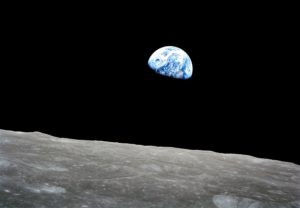
In the early days of the NASA human space flight program, the first astronauts were little more than riding rockets into space. They were brave individuals whose ability to make the right decision in arduous situations enabled them to succeed. But as space programs have evolved, and the technology has been proved over time, astronaut selection has diversified.
While the first astronauts to walk on the planet Mars will again carry some of the characteristics of the Apollo astronauts for their bravery and many years training, the minimum seven months voyage alone defines a type of personality that is adept to extremely long periods of time in nearly total isolation.
Psychological evaluation now takes priority over skills and mastery of technology as the later can be provided through training. Consideration of multiple month journeys, even permanent communities defines a particular character and personality for the first to Mars.
With the success of SpaceX, Planetary Resources, and the full private sector is shifting the paradigm. As Virgin Galactic moves to take passengers into low Earth orbit, Branson also envisions a day in which the same people venture to Mars, to visit or to remain. Elon Musk, founder of SpaceX sees tens of thousands of people living on Mars within his lifetime.
- What happens when humanity once again sails to a distant shore?
- How does this great adventure differ from those of the past centuries and millennia in which humans ventured to new continents? How is it the same?
- What can we learn from our many mistakes and how can we improve our societal standards, personal interactions, and political and religious arenas as we start again on another world?
While it is not (yet) realistic to alter the fundamental characteristics of the human species, it is possible to ask a set of basic questions; in trying to find the answers, we may discover ways in which we can move to prevent certain tendencies toward self-destruction while at the same time, find ways to improve.
In 1969 we looked back on the Earth from the Moon for the first time. Those images captured a view of our world without borders, without lines which defined us versus them. We have in many ways, today, lost site of that point of view. Perhaps the journey to another planet will again spark the imagination of the human creative engine to see a new way of living in which our common goal is greater than our shared fears.

